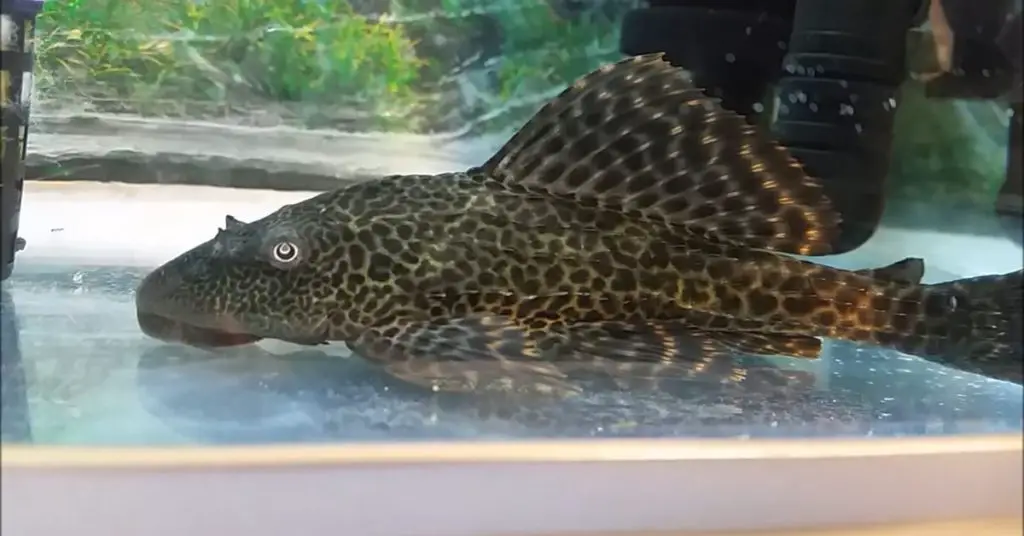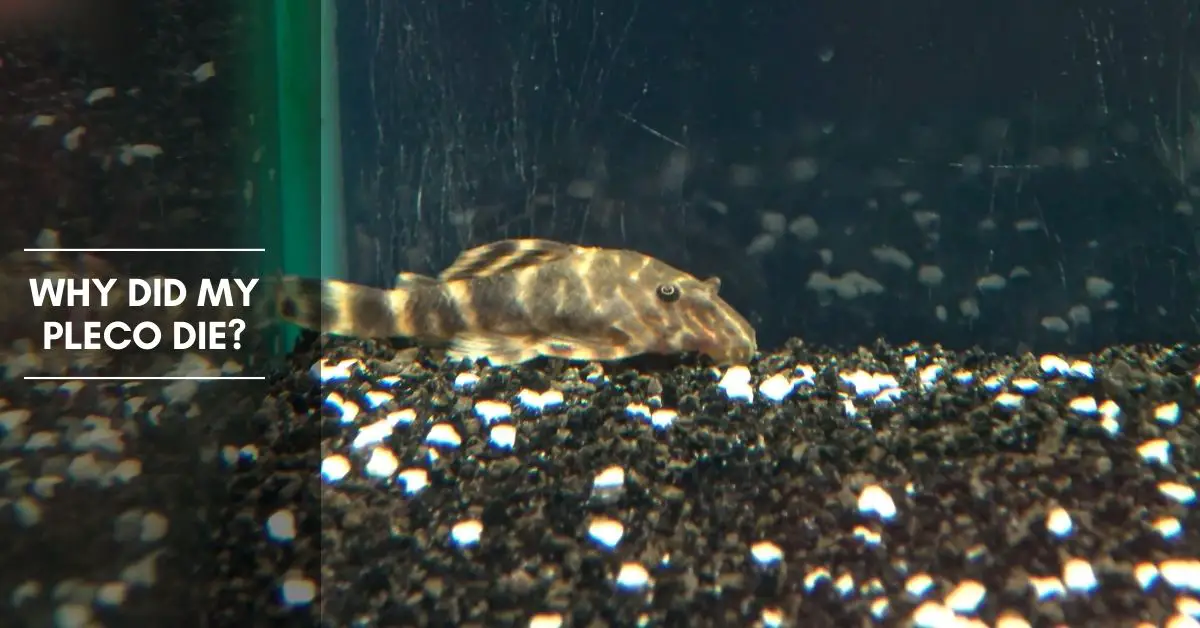Many new fish keepers are unaware that there are many different varieties of plecos that can be kept in an aquarium. Some of the most popular species for beginners include the Clown Pleco, the Common Pleco, and the Zebra pleco.
Of course, with any variety of fish care should be taken to ensure clean water conditions, but some people have had more difficulty than others with keeping their plecos alive.
Why did my Pleco die suddenly? Plecos are common aquarium fish, and it is not uncommon for them to die. The reasons for their death may vary from natural causes such as old age, an illness, or the environment they live in.
These types of deaths are expected and nothing should be done about them. However, it is important to understand that their death could also be caused by overfeeding and poor water quality.
What are some of the causes of death for Pleco?
- Old age: Plecos live about 10–20 years, so a fish that reaches 20 is old. If a pleco is old enough for signs of aging to be visible, then it is old enough to begin dying.
- Lack of oxygen: If your Pleco was in a tank with poor water circulation, then it will not be able to get enough oxygen, and will die. When a fish is stressed, it will often stop feeding, and this will cause it to stop getting oxygen by eating.
- Bacterial infection: If you have a fish that is always sick and its fins are discolored, it may have a bacterial infection.
- Lack of food: If your Pleco is not getting enough food, it will start to weaken and will die.
- Virus infection: If your Pleco develops a systemic disease (like a virus infection), then it will start to weaken and will die.
Any other illness or condition that could be stress-related.
What are the symptoms of Plecos death?
There are many symptoms of Plecos death. The most common is their skin color changing to a dark gray or black color. They will also stop eating and become lethargic.
When a Pleco stops eating, its skin color changes to a dark color. They will also become lethargic as they are not feeding themselves. However, there have been cases where the fish became extremely aggressive and erratic before it died which can be a sign of sickness due to ichthyophthirius, a parasitic disease.
How do I prevent my Pleco from dying?
There are many different reasons why a Pleco may die, but these tips should help you keep your fish happy and healthy. The best way to start this off is by giving your Pleco a variety of food to eat.
API STRESS ZYME Freshwater and Saltwater Aquarium Cleaning Solution 16-Ounce Bottle
API ACCU-CLEAR Freshwater Aquarium Water Clarifier 4-Ounce Bottle
30% OffAPI GENERAL CURE Freshwater and Saltwater Fish Powder Medication 10-Count Box
15% OffThe best way to prevent your Pleco from dying is to feed them a variety of food and provide at least 10 gallons of water for them every day. Regular water changes and cleaning the tank will also help your Pleco stay healthy.
Plecos are freshwater fish that need to live in water that is between 22 and 28 degrees Celsius (72-82°F). If the water in your tank falls below this temperature, then your Pleco can die. You can prevent this by using a heater to keep the water at the right temperature.

My pleco died with a bloated stomach, what could be the reason for that?
The most likely cause of a bloated stomach is that the fish has consumed too much food. The pleco’s stomach will often swell up to many times its original size.
Plecos can be susceptible to many different diseases, but the most common cause of death is a bloated stomach. Plecos are known for their appetite and will eat almost anything that they can fit into their mouth.
This often includes rocks, sticks, dead fish, and other debris. This causes the stomach to become blocked, which can lead to death if it’s not taken care of quickly.
Why did my fish die after a water change?
A water change is a great way to keep your tank clean, but it can cause some problems. There are many things that can happen during a water change that may have caused the death of your fish.
One possible reason for this is when you remove too much of the old water. If you drain the tank too quickly, this leaves very little time for the nitrogen cycle to restart.
Another most common reason a fish would die after a water change is because the pH of the tank was not adjusted. The pH level should be between 7.0 and 8.0, but it can vary depending on what type of fish you have.
How do I know if my Pleco is sick?
Symptoms of a sick Pleco can include:
- Lethargy and pale coloration
- Lack of appetite and weight loss
- Swimming in circles or upside down
- Excessive mucus
- Lack of oxygen in the blood
- Breathing difficulties
How can I tell if my Pleco is in a bad environment?
A Pleco fish may be in a bad environment if they exhibit any of these signs:
- They spend most of their time buried or lying on the bottom of the tank.
- They stop eating and become thinner.
- They start behaving abnormally.
- If there is a problem with ammonia levels in the water, they will start to show white spots and lesions on their body and fins.
Do plecos eat dead fish?
Plecos are scavengers, meaning they will eat dead fish. In fact, they may eat the fish before it has a chance to fully decompose, leaving a rotting stench in the tank.
Conclusion
In conclusion, a few causes of death for Plecos include changes in water parameters, starvation, and parasite infestations.
Symptoms of a Pleco dying include loss of appetite, lethargy, and open mouth breathing.
To prevent your Pleco from dying, you can change the water regularly, ensure proper feeding habits, use a quarantine tank before introducing new additions to the tank, and regularly test the water.

Hi, my name is Sean, and I’m the primary writer on the site. I’m blogging mostly about freshwater and saltwater aquariums, fish, invertebrates, and plants. I’m experienced in the fishkeeping hobby for many years. Over the years I have kept many tanks, and have recently begun getting more serious in wanting to become a professional aquarist. All my knowledge comes from experience and reading forums and a lot of informative sites. In pursuit of becoming a professional, I also want to inspire as many people as I can to pick up this hobby and keep the public interest growing.
Read more about Sean.
Please join also my Facebook group.
















I have albino plecos and for some reason today a bunch of the babies died. They turned white. All of them seemed to be moving just fine yesterday and eating. I feed them 2 times a day. I have a 30 gallon tank and these are babies raised by the mom and dad. They are all the smaller ones as of right now. I checked my water and it all seems ok just a little off the ph. More of them died overnight after I treated the ph. Can you give me guidance. I have been raising these for over 3 years without any problem.